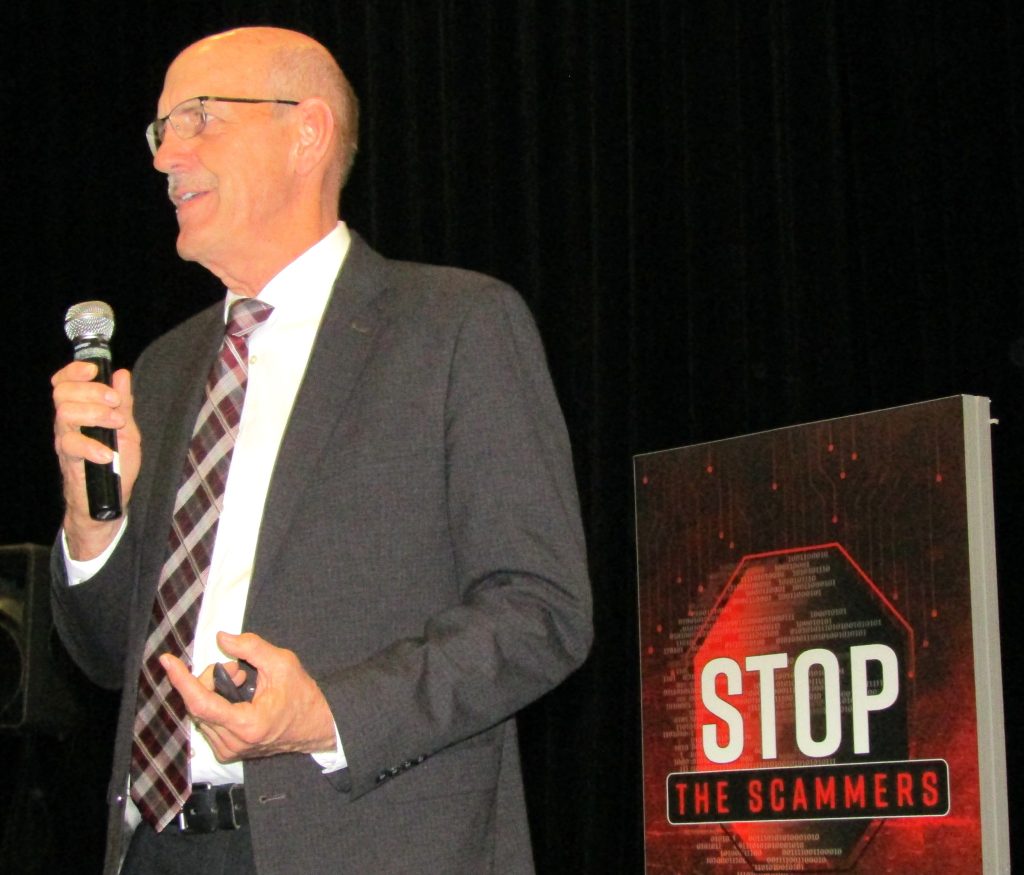A “Stop the Scammers” information session is set for 12:30 p.m., Thursday, May 1, at the Tanglewood Hills Events Center, 4250 Middle Road, Bettendorf.
The educational campaign’s goal is to educate Iowans on scams impacting the state and how Iowans can best protect themselves from scammers in the digital age. The campaign stop is being presented by the Iowa Department of Insurance and Financial Services in partnership with the Iowa Attorney General’s Office and AARP Iowa.
The event is free and open to the public.
A similar “Stop the Scammers” educational event was held in March 2024 in downtown Davenport.
The “Stop the Scammers” campaign aims to educate Iowans about the types of scams that flow through communities every day and how they can protect themselves.
“I’ve seen so many very large losses. … These scams can be devastating to the entire family,” said Doug Ommen, Iowa Insurance commissioner, and one of the March 2024 event’s presenters.
He added that one of the tour’s top goals is to educate people and “help prevent scams instead of picking up the pieces” after people have been conned out of their money.
Here are some of the top tips officials offered at last year’s event in Davenport:
- Always double check. If a person calls and wants money, hang up the phone and call a trusted advisor. Officials said that Iowans’ reputation for being nice people – called “Iowa nice” – is one of the reasons scammers target people in the state. It’s OK to say no and hang up the phone.
- Report scams. People can report scams by sending emails to [email protected] or by calling (515) 281-5926 or (888) 777-4590.
- Never judge a person’s integrity by the sound of his or her voice on the phone. Scammers know how to sound friendly in order to gain your trust.
- Take your time. Take your time to research, get advice, and learn more about investing.
- Watch out for “reload” scams. If you lost money once, don’t let scammers trick you into trying to recoup the money.
The presenters also recommended that participants contact the three major credit bureaus – Equifax, Experian and TransUnion – and put a freeze on their credit. This will keep criminals from approving any new credit account in your name.







